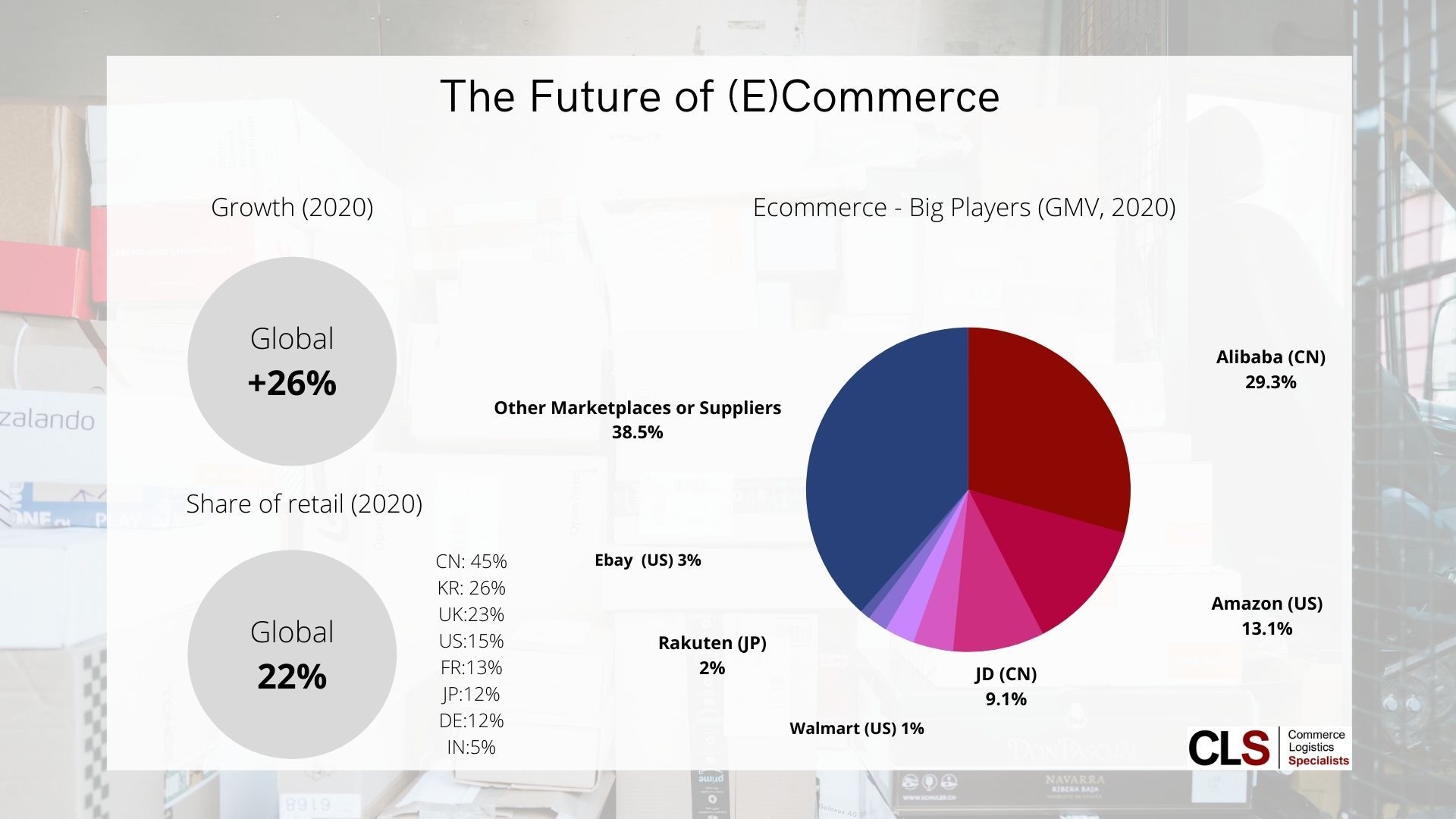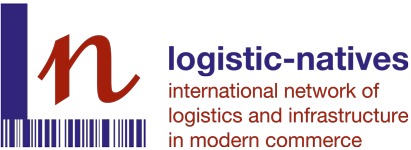The Future (E)Commerce: Lessons learned from the pandemic

#Ecommerce is growing and will continue to grow – so far, no surprise. Ecommerce as a part of #global #commerce is becoming increasingly important: in 2020, eCommerce already accounted for 22% of global #retail, and the annual growth (further accelerated by the COVID-19 #pandemic) was 26%.
Yet there is still a lot of potential upsides. While ecommerce already accounts for 50% of retail in China, resulting in the largest ecommerce market in the world by far, the #share in most Western countries is between 10-15% (with the exception of the UK at 23%).
Marketplaces with their associated #platformeconomies are extremely successful and seemingly unstoppably expanding their dominance: in 2020, more than 75% of all ecommerce revenue was generated through #marketplaces, more than 50% of which through Ali, Amazon and JD alone. „Old”, traditional, store-based retailing has been largely written off, seen as having no chance against the highly efficient and digitalized ecommerce service providers.
This #development is irreversible. #Consumer needs and preferences, the ever-increasing opportunities offered by #digitalization, and the cost and efficiency advantages of data-driven ecommerce service providers make it very likely that ecommerce will continue to grow at the expense of traditional, store-based retail.
While ecommerce is growing, fundamental #businessmodels and the market have also been changing since 2020, accelerated by the pandemic. The market and business models are developing rapidly and sustainably – often unnoticed by the general public.
In our new #CLSseries, #TheFutureofEcommerce, we will be highlighting and examining several interesting #developments in the market, starting with:
· How the rise of food delivery fundamentally changes business models, customer expectations and ecommerce #logistics, even challenging the dominance of electronic interfaces as illustrated by current developments in the USA
· Why omnichannel is becoming a “must have”, and why suddenly traditional retail seems to be holding better cards than the online retailers and marketplaces which currently dominate.
· What Digitalization 2.0 really means, which business models are threatened by future developments, and which ones will benefit.
Click here for the LinkedIn-Article.

Walter Trezek
Document Exchange Network GmbH

